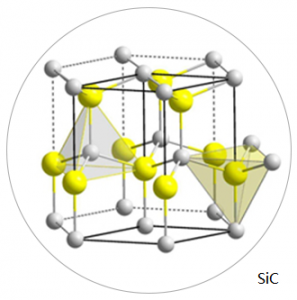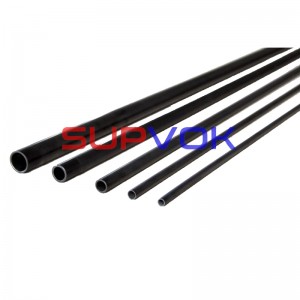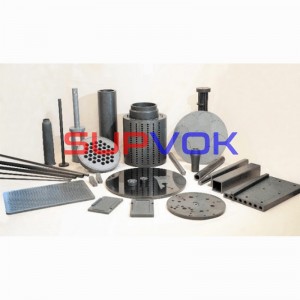Silicon carbide ceramics, also known as SiC ceramics, are a versatile and highly durable material popular across various industries for their exceptional properties. With its unique combination of high thermal conductivity, excellent hardness, low thermal expansion and excellent chemical resistance, silicon carbide ceramics have become the first choice for many applications. In this blog post, we delve into the world of silicon carbide ceramics, exploring its properties, applications, and advantages that set it apart from other materials on the market.
Properties of silicon carbide ceramics
One of the distinguishing features of silicon carbide ceramics is their extraordinary hardness. On the Mohs scale of mineral hardness, silicon carbide scores as high as 9-9.5 out of 10, making it one of the hardest materials known to man. This property gives silicon carbide ceramics excellent wear resistance, making them ideal for applications where other materials would deteriorate rapidly under abrasive conditions.
In addition, silicon carbide ceramics have high thermal conductivity and can dissipate heat quickly. This property is especially valuable in industries that require efficient heat transfer, such as electronics, automotive and aerospace. Silicon carbide ceramics ensure optimum performance and longevity by efficiently conducting heat away from sensitive components.
In addition, silicon carbide ceramics have low thermal expansion characteristics. This means it can withstand extreme temperatures without significant dimensional changes. As a result, silicon carbide ceramics remain stable and reliable in environments where sudden temperature fluctuations or thermal shocks occur, making them useful in a variety of high-temperature applications.
Application of silicon carbide ceramics
The remarkable properties of silicon carbide ceramics make it a versatile material for a wide range of applications in different industries. Let’s explore some of its common uses:
1. Electronics: Silicon carbide ceramics are widely used in the electronics industry due to their high thermal conductivity and excellent electrical properties. Power electronic devices such as transistors and diodes benefit from the excellent heat dissipation capabilities of silicon carbide ceramics, allowing them to operate at higher temperatures and power densities.
2. Automotive: The automotive industry uses silicon carbide ceramics in components that require high strength and durability. For example, ceramic brake discs have superior performance compared to traditional steel discs due to their excellent wear resistance and thermal stability, resulting in improved braking efficiency and longer service life.
3. Aerospace: In aerospace applications, silicon carbide ceramics can be used for components that withstand extreme temperatures and harsh environments. It is used in gas turbines, rocket engines and heat exchangers, where its thermal shock resistance, light weight and high mechanical strength prove invaluable.
4. Industrial equipment: Silicon carbide ceramics are widely used in various industrial equipment, such as furnaces, kilns, and pumps, due to their chemical resistance, high wear resistance, and ability to maintain their structural integrity even in harsh chemical environments .
Benefits of SiC Ceramics
The use of silicon carbide ceramics offers many benefits for different applications:
1. Enhanced durability: Compared with traditional materials, silicon carbide ceramics have excellent hardness and wear resistance, which can extend the service life and reduce maintenance requirements. This translates into cost savings and efficiency gains across industries.
2. Efficient thermal management: The high thermal conductivity of silicon carbide ceramics ensures effective heat dissipation, prevents overheating and optimizes the performance of electronic and high-temperature applications. This feature increases the reliability and lifespan of the device.
3. Chemical resistance: Silicon carbide ceramics have excellent chemical corrosion resistance and are a reliable choice for industries exposed to corrosive chemicals. Its resistance to oxidation also prevents scaling or degradation, further enhancing its durability.
4. Versatility: SiC ceramics can be customized to meet specific needs by adjusting their composition and manufacturing process. This flexibility enables the production of customized solutions for different applications in different industries.
in conclusion
Silicon carbide ceramics have become an indispensable material in all walks of life due to its high hardness, good thermal conductivity, small thermal expansion, and chemical corrosion resistance. Whether in electronics, automotive, aerospace or industrial equipment, silicon carbide ceramics offer enhanced durability, efficient thermal management, resistance to harsh chemical environments and customization possibilities. Its versatility and outstanding performance make it the first choice for many applications where reliability and efficiency are critical.
Post time: Jun-21-2023








